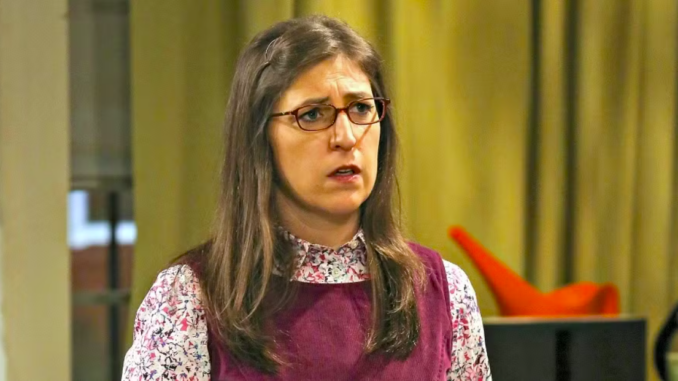
The Unexpected Beginning
When Amy Farrah Fowler first appears in The Big Bang Theory, she seems like a one-note joke. Her introduction, via Howard and Raj’s matchmaking scheme for Sheldon, brings in a character so similar to Sheldon that it feels like parody:
“I don’t object to the concept of a relationship. I just don’t see the point.”
Dry. Robotic. Clinical. Viewers wondered: is she just a female version of Sheldon? Another joke about social awkwardness?
But what happened next shocked everyone.
Amy evolved.
She grew into one of the most emotionally layered, relatable, and brilliantly funny characters on the show.
Discovering Friendship and Emotion
Early Amy struggles with empathy, much like Sheldon. But unlike him, she wants to connect. And that’s the key difference.
Through her friendship with Penny and Bernadette, Amy discovers a world beyond lab coats and brain scans. She starts to crave experiences she missed out on: sleepovers, girl talk, and emotional intimacy.
“I don’t have a lot of girlfriends. Or any, really. But I’d like to.”
Her scenes with Penny are particularly heartwarming—and hilarious. Amy idolizes Penny at first, in a slightly stalker-ish way. But over time, their bond becomes genuine.
She learns how to laugh. How to hurt. How to support others. And in doing so, she becomes the emotional core of the series.
The Challenge of Loving Sheldon Cooper
Loving Sheldon isn’t easy. Amy knows that. But what makes her remarkable is her patience—not the submissive kind, but the strategic, self-aware kind.
She doesn’t try to change Sheldon with manipulation or pressure. She waits. She draws boundaries. And when those boundaries are crossed, she walks away.
“I love you. But I need more.”
That line—spoken during their brief breakup—is one of the most powerful in the show. It’s not about drama. It’s about self-respect.
Amy refuses to settle for less than she deserves. And in doing so, she becomes the catalyst for Sheldon’s emotional growth.
Not Just a Girlfriend, But a Genius

Let’s not forget: Amy is a neurobiologist with a PhD, a published academic, and later, a Nobel Prize winner.
She doesn’t just support Sheldon’s scientific career—she has her own. She challenges him intellectually. She stands beside him as an equal.
Their joint Nobel win in the final season isn’t just a plot point. It’s the culmination of a decade-long journey for both characters, professionally and personally.
When she gives her Nobel speech, she doesn’t talk about herself. She talks to girls who might feel invisible in science:
“Don’t stop being who you are. Let the world catch up.”
And just like that, Amy becomes a role model—not just in the show, but in real life.
The Transformation: Subtle but Revolutionary
Amy’s glow-up isn’t physical (though her wardrobe does improve). It’s emotional. Social. Relational.
She learns how to hold space for others. How to laugh at herself. How to be vulnerable.
She goes from a socially stunted oddball to a woman of grace, intellect, and empathy—without ever sacrificing her authenticity.
Amy doesn’t become less of a scientist. She becomes more of a person.
Final Thoughts
Amy Farrah Fowler is the kind of character who sneaks up on you. At first, she’s strange, even hard to like. But slowly, with every awkward smile and heartfelt line, she wins you over.
She’s proof that growth doesn’t always come in explosions—it can come in quiet, thoughtful evolution.
In a show dominated by male energy and nerd culture, Amy became a beacon of balance. A scientist, a friend, a lover, and finally—a Nobel laureate.
And she did it all while being unapologetically, wonderfully herself.
